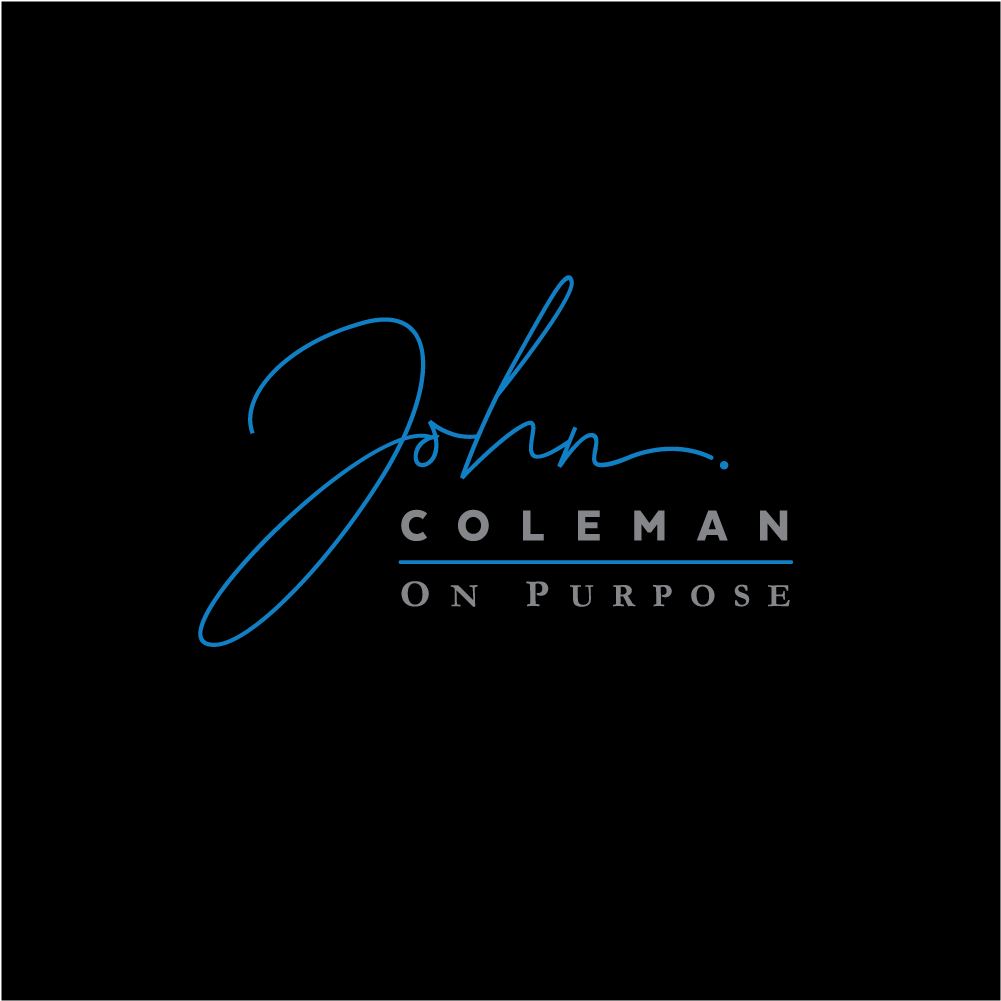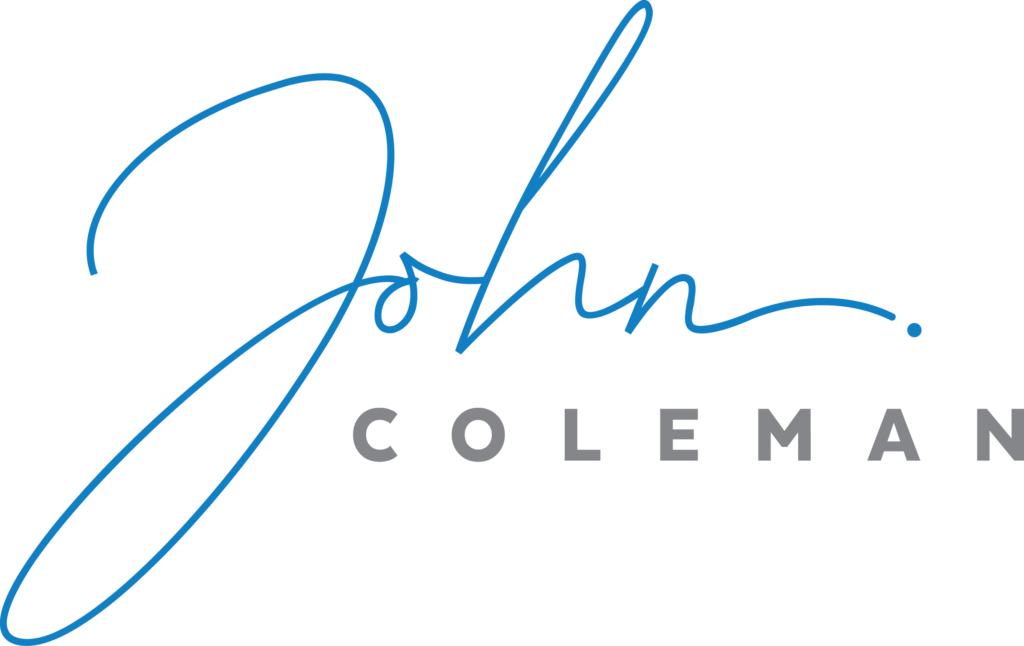Welcome to the On Purpose newsletter. I’m so grateful you are here. This letter will explore a variety of topics around leadership, investing, and living with purpose. To set the stage, I’ll offer my initial thoughts on what we get wrong about personal and professional meaning, adapted from the forthcoming HBR Guide to Crafting Your Purpose (Harvard Business Publishing, 2022).
Curtis Jenkins is a marvel. On May 24, 2019, CBS Evening News aired a short segment about the school bus driver from Dallas who must be among the most purposeful men in America.[1] I spent two years on a public-school board in Georgia, and I know that driving a school bus—while remarkably important—can be grueling and thankless. But Curtis approaches his work with energy, optimism, skill, and care.
Curtis doesn’t simply drive the bus. He creates what the segment referred to as a “yellow bus utopia.” He assigns each of the children responsibilities on the bus—police officers, administrative assistants—and he turns each journey into an exercise in community. His technical job is simply to pick kids up at their home bus stops, drop them at Lake Highlands Elementary, and return them safely in the afternoon. But he’s crafted his work into so much more.
“These are my children,” he says in the segment. “These are my community. I love ’em all.”
And what’s striking beyond Curtis’s creativity is the deep joy he so clearly takes in his work—his eyes dance, his smile is infectious—and the extraordinary care he invests in his passengers. His kids’ comments say it all:
“He really cares about us.”
“He’s really kind.”
“[H]e helps anyone in need.”
“He’s the father that I always wanted.”
As the producers of the clip note, “We make the mistake sometimes of thinking certain jobs are more important than others. But Curtis Jenkins made his job important.”
He takes the ordinary and makes it extraordinary. His life and work are filled with purpose, not by accident but by design.
Three Myths of Purpose
“How do I find my purpose?”
That was the first question I received at an event for a book I’d co-authored called Passion & Purpose in 2011. I was speaking at the COOP in Harvard Square—the University’s main bookstore—to a group of perhaps 50-60 people. The crowd was incredibly diverse; and the young woman who asked the question looked to be an undergraduate student of perhaps twenty years old in a grey sweatshirt. At the time, I remember stumbling through the answer. I don’t remember what I said. I know she must have left as unsatisfied with my answer as I did. For someone who’d written a book with “purpose” in the title, I hadn’t much reflected on the topic.
I’ve come to believe that the question is so difficult to answer because it is fundamentally flawed—packed with at least three fatal errors that immediately lead us down an unhelpful path and away from realizing meaning in our work. That’s not a criticism of my young questioner or the hundreds who followed her—I held the same implicit misconception. After years of wrestling with the topic, I think there are three myths we must confront in how we think about purpose.
Let’s unpack each of these myths one at a time.
Myth #1: Purpose is only a thing you find.
Like millions of others, I’m enjoying Disney’s Star Wars series, “The Mandalorian.” The series centers on a mysterious figure whose life is dominated by his pursuit of fugitives. In the first episode of the series, the Mandalorian’s life doesn’t look very fun or purposeful.
But then he’s commissioned on a particularly high bounty and discovers that his newest fugitive is an adorable, innocent baby (“baby Yoda”). The Mandalorian captures this prey and hands him over to be imprisoned, abused, or slaughtered but then has a change of heart, re-kidnaps the cute kid, and leaves town as a fugitive himself. This violent, purposeless mercenary literally has a purpose—saving the baby—fall in his lap.
This is not a unique literary formulation. In mythology, it’s a critical part of “The Hero’s Journey”—a call to adventure that sets in motion a quest by which an ordinary person becomes a hero. It’s Katniss Everdeen tossed into the Hunger Games. It’s Luke Skywalker pulled from his boring life on Tatooine or Rey Skywalker on Jakku. It’s Frodo Baggins plucked from obscurity to confront great evil in the Lord of the Rings. In these constructs, the hero is leading a normal—often disappointing—life, but fate delivers to him or her one true purpose, a quest, out of the blue and suddenly imbues the hero’s life with meaning.
On social media, I often see an inspiring quotation attributed (falsely) to Mark Twain: “The two most important days in your life are the day you are born and the day you find out why.” That quote neatly articulates this Hollywood version of purpose. The problem is that, for most people, that “call to adventure” never happens so clearly. And if you wait your whole life for it, or even seek out the one call to adventure that can make your life meaningful, you’re almost certainly destined for disappointment not discovery.
Purpose isn’t only a thing you find. More often, it’s a thing you make—something you weave into your existing work and life. Like Curtis Jenkins, you can’t simply wait for purpose to find you. You must craft it into everything you do.
Myth #2: Purpose is a single thing.
The second misconception I often hear is that purpose can be articulated as a single thing. It’s the one “why” of a person’s life. And if found, it is sufficient to fill every part of that life with meaning.
On the surface some people do seem to have an overwhelming purpose in their lives. Mother Teresa lived her life to serve the poor. Samuel Johnson poured every part of himself into his writing. Marie Curie devoted her energy to science.
And yet even these luminaries had other sources of purpose in their lives. Mother Teresa served the poor as part of what she believed was a higher calling—a devotion to a faith that also called her to reflection, prayer, relationship, and study, in addition to service. Curie, the Nobel prize–winning scientist, was also a devoted wife and mother (she wrote a biography of her husband Pierre, and one of her daughters, Irene, won her own Nobel prize). And Johnson, beyond his writing, was known to be a great humanitarian in his community, often caring personally for the poor and whose house was often filled with the nomadic people with whom he formed such close relationships.
Most of us will not have one true purpose—maybe no one does. Rather, we have multiple sources of purpose in our lives. It’s not purpose we are looking for but purposes—the varied sources of meaning that help us find value in our work and lives. Professional commitments are only one component of this meaning, and often our work isn’t even the most meaningful thing that we do. Acknowledging these multiple sources of purpose takes the pressure off of finding a single thing to give our lives meaning.
Myth #3: Purpose is stable over time.
“How do I find my purpose?” When many people ask that question, they are looking for something that could guide her entire life—from that point in college to the grave. But our lives aren’t like that, are they? I know that in my own life, my purpose has shifted dramatically as I’ve aged. Early in my career, it was learning the skills to thrive in business, charting a career path, traveling to new places and seeing the world, and finding a life partner. And now, I find purpose in my job, my community activities, my wife, and my four kids—my days of high school basketball and solo travel largely in the past. I know that, in the remainder of my life, I’ll likely transition careers again at some point, have grandkids, and allocate more of my time to community service—my sources of meaning ever-shifting.
In a world in which the outside environment is so dynamic and unstable, that may be more true than ever. It’s common now for people to have multiple careers in their lifetimes. I know one individual, for example, who recently left a successful private equity career to found a startup. I know two more who recently left business careers to run for elective office. And whether or not we switch professional commitments, most of us will experience personal phases in which our sources of meaning change—childhood, young adulthood, parenthood, and empty-nesting, to name a few.
This evolution in our sources of purpose isn’t flaky or demonstrative of a lack of commitment, but natural and good. Just as we all find meaning in multiple places, the sources of that meaning can and do change over time.
There’s rarely one purpose that defines an entire life—or at least not only one purpose. Rather purpose—like us—changes over time.
Why does this matter and what can we do about it?
One the main themes of this newsletter will be exploring the topic of purpose-crafting in greater depth, understanding how we can build greater purpose and meaning into everything we do. I believe that practice, exercised consistently over a lifetime, is critical to human flourishing. And exploring it together can help us live happier, more fulfilled lives in which we help others do the same.
[1] “”He’s the father that I always wanted”: Texas school bus driver gives more than just a ride,” Steve Hartman. CBS Evening News, May 24, 2019. Link.



